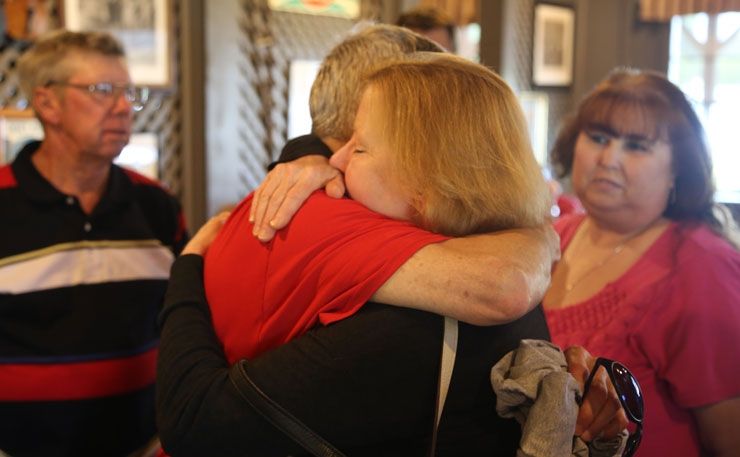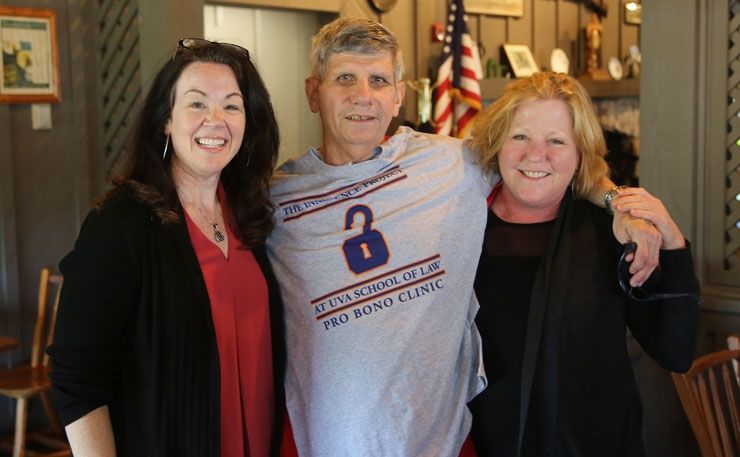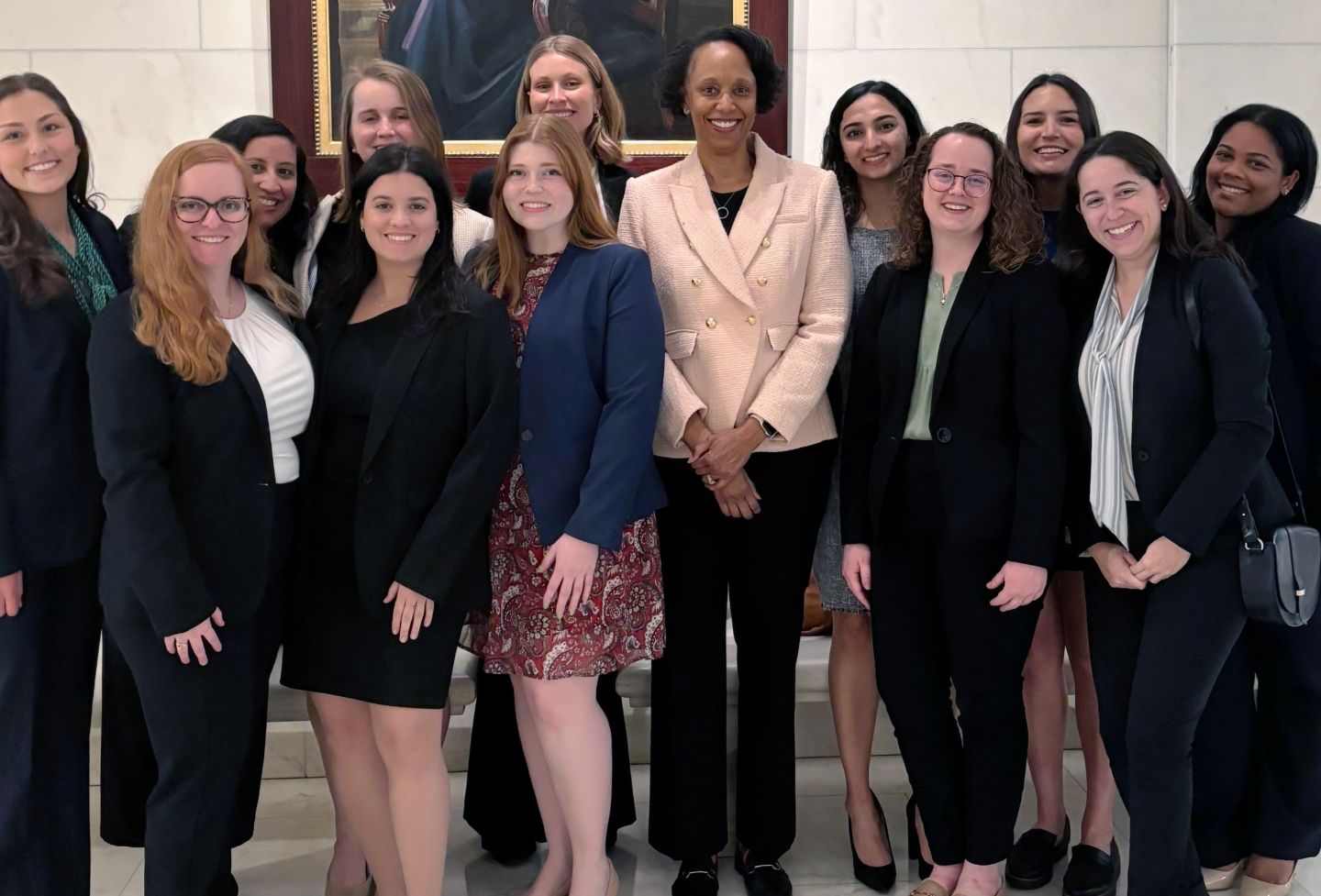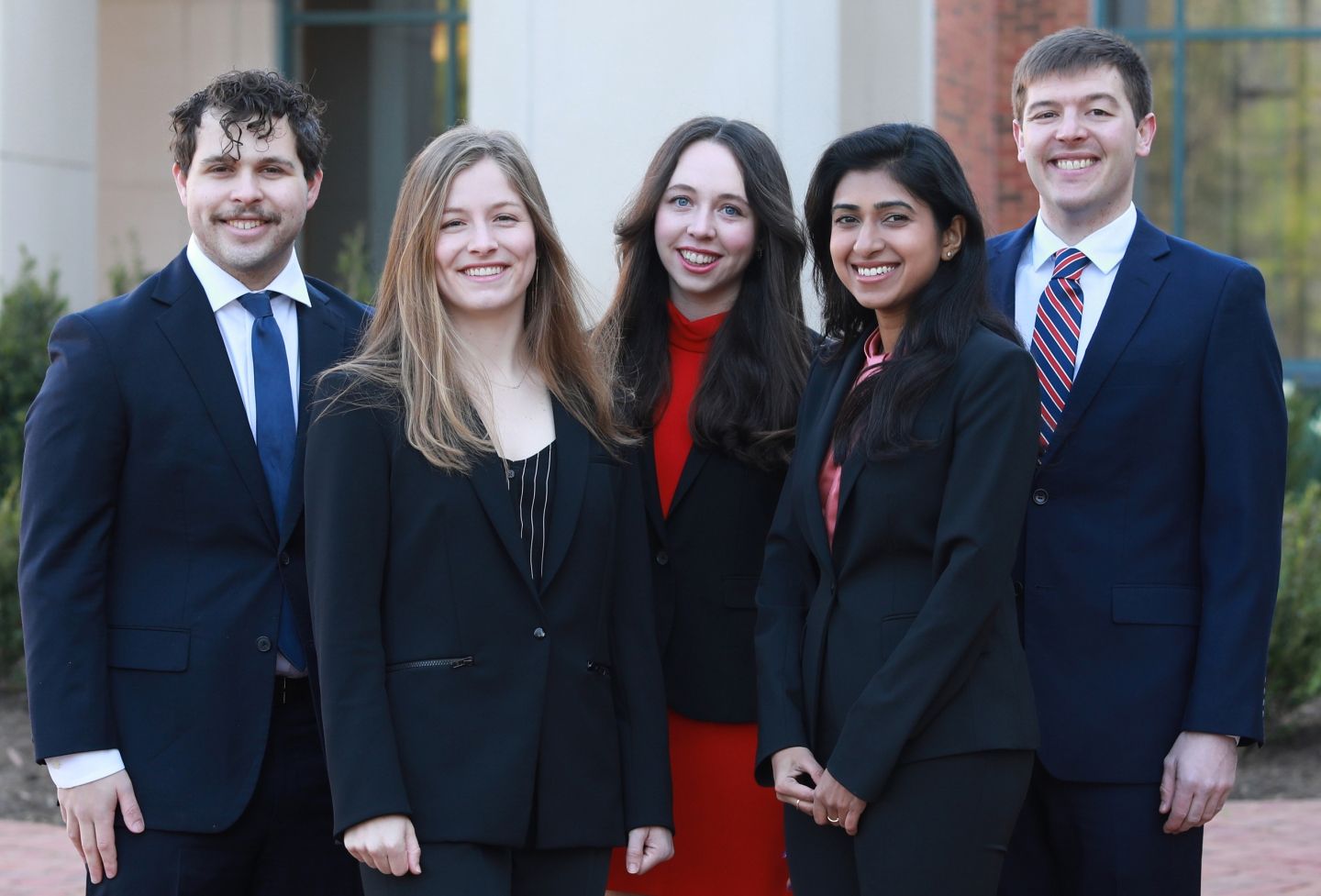Emerson Stevens, a client of the University of Virginia School of Law Innocence Project, walked out of the Greensville Correctional Center on May 19 a free man, though he is not yet cleared of the crime for which he was convicted.
In the sweltering prison parking lot, the newly paroled Stevens was greeted by about a dozen members of his extended family. Stevens embraced his joyful family members, starting with his wife, Sandra. To celebrate the moment, Stevens donned a T-shirt printed with the slogan, "Sorry, I can't hear you over the sound of my freedom."
Also present were Jennifer Givens and Deirdre Enright, directors of the clinic, as well as students who had worked on the case, which the clinic took on in 2010.

"It was surreal," said Angelique Ciliberti, a 2017 graduate of the Law School who worked on Stevens' case for two years. "Finally we could have normal conversations without Emerson being handcuffed, or being limited to 20 minutes."
In 1986, Stevens was convicted of abducting and murdering Mary Keyser Harding, a Lancaster mother of two. His sentence was set at 164 years. Stevens has always maintained his innocence.
In 2016, the clinic was alerted to the existence of a box of documents pertaining to the investigation that Stevens' defense had not seen during the trial. According to the clinic, the documents included evidence of coercive police practices, witness statements that contradicted the prosecution's case and lists of additional witnesses that may have undermined the case.
In December, the clinic filed a habeas corpus petition in state court, citing the new evidence to claim unlawful detention.
Stevens was granted parole in April. The clinic's directors stressed that the parole board's decision did not constitute an exoneration. The habeas corpus petition remains pending in the Lancaster Circuit Court, and Givens said the clinic members hope that that court will move quickly to address Stevens' claims and vacate his conviction.

"Unfortunately, it is much more difficult to undo a wrongful conviction than it is to obtain one," Givens said. "It often takes many years. We will continue to pursue our client's exoneration through all available legal and executive avenues. We owe that to Mr. Stevens."
Throughout the process, members of Stevens' family showed up to every court appearance, no matter how minor. Enright said that this kind of in-person support was vital for defendants going through painstaking legal proceedings.
Photography was prohibited on grounds at the prison and the correctional officers encouraged the reunited family to vacate the premises as quickly as possible, so the festivities transitioned to a local restaurant, where Stevens ate a fitting first meal for a long-time fisherman: fried haddock.
During the meal, Stevens caught up with his family while fielding calls from well-wishers who had not been able to make the trip to Greensville. One of the students noted that this was likely Stevens' first experience using a cell phone, as they were not widely available when he went to prison.
As a condition of his parole, Stevens will not be living in the Lancaster area, and he is still subject to probation supervision and restrictions.
"The fight is not over," Ciliberti said. "We will continue to litigate his case until he is exonerated and his name is cleared."
Related News
- New Evidence Bolsters 2 Habeas Petitions Filed by Innocence Project at UVA Law
- UVA Law's Innocence Project Finds DNA That May Exonerate Man
- Student Pro Bono Clinic Investigates Claims of False Conviction
Founded in 1819, the University of Virginia School of Law is the second-oldest continuously operating law school in the nation. Consistently ranked among the top law schools, Virginia is a world-renowned training ground for distinguished lawyers and public servants, instilling in them a commitment to leadership, integrity and community service.


